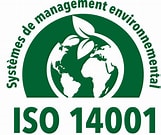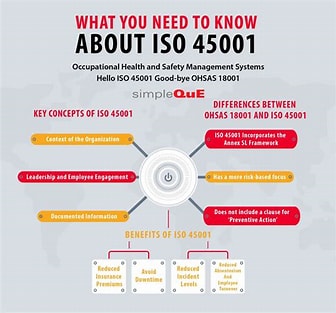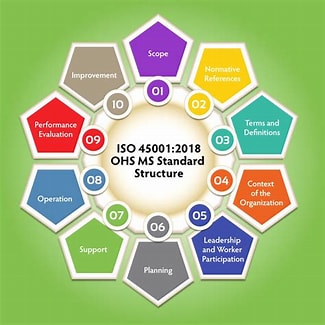In the face of growing environmental challenges and increasing regulatory pressure, businesses of all sizes are seeking ways to reduce their environmental impact. While many small and medium-sized enterprises (SMEs) may believe that implementing an environmental management system like ISO 14001 is too costly or complex for their operations, the reality is quite different. ISO 14001 can offer significant benefits to SMEs, helping them improve sustainability, reduce costs, and enhance their market competitiveness.
In this article, we will explore the specific benefits of ISO 14001 certification for SMEs and why adopting the standard can be a game-changer for smaller businesses.
1. Improved Regulatory Compliance
One of the primary benefits of ISO 14001 for SMEs is ensuring compliance with environmental regulations. Staying on top of changing environmental laws and policies can be overwhelming, especially for smaller businesses with limited resources. ISO 14001 provides a structured framework that helps SMEs identify and meet their compliance obligations, reducing the risk of fines, penalties, or legal challenges. The standard also encourages continuous monitoring of regulations, ensuring that your business remains compliant over time.
2. Cost Savings Through Resource Efficiency
For many SMEs, reducing operational costs is a top priority. ISO 14001 promotes the efficient use of resources, such as energy, water, and raw materials, leading to cost savings. By identifying wasteful practices and implementing more sustainable processes, businesses can lower their utility bills, reduce waste disposal costs, and optimize resource consumption. Over time, these savings can have a significant impact on the bottom line, making ISO 14001 a valuable investment.
3. Enhanced Reputation and Customer Trust
Today’s consumers and business partners are increasingly looking for companies that demonstrate environmental responsibility. ISO 14001 certification signals that your SME is committed to minimizing its environmental impact and operating sustainably. This can enhance your reputation, build customer trust, and differentiate your business from competitors who may not prioritize environmental management. SMEs with ISO 14001 certification are more likely to attract environmentally conscious customers, partners, and investors, leading to new business opportunities and growth.
4. Access to New Markets and Business Opportunities
Many large corporations and government organizations require their suppliers to have ISO 14001 certification as part of their procurement process. By achieving certification, your SME can gain access to new markets and increase its chances of winning contracts with companies that prioritize sustainability. ISO 14001 can also give your business a competitive edge when bidding for projects, especially in industries where environmental performance is a key consideration, such as construction, manufacturing, and retail.
5. Risk Management and Environmental Impact Reduction
ISO 14001 encourages a proactive approach to identifying and mitigating environmental risks. By systematically assessing the environmental aspects of your operations, you can identify potential risks and implement measures to reduce or eliminate them. This can help your SME avoid environmental incidents, which can be costly and damaging to your reputation. Reducing your environmental impact not only benefits the planet but also minimizes the risks associated with non-compliance, pollution, or resource scarcity.
6. Employee Engagement and Satisfaction
Implementing ISO 14001 fosters a culture of environmental responsibility within your business, engaging employees at all levels. Employees are more likely to take pride in working for a company that values sustainability and takes tangible steps to reduce its environmental footprint. This sense of purpose can lead to increased employee morale, satisfaction, and productivity. Additionally, ISO 14001 encourages staff to participate in environmental initiatives, driving innovation and continuous improvement in your environmental practices.
7. Continuous Improvement and Operational Efficiency
ISO 14001 promotes a philosophy of continuous improvement, helping SMEs identify opportunities to enhance their environmental performance and operational efficiency. The standard’s Plan-Do-Check-Act (PDCA) cycle encourages businesses to regularly review their processes, set new environmental goals, and implement changes to improve outcomes. For SMEs, this can lead to better use of resources, improved operational practices, and reduced environmental risks—all contributing to greater long-term sustainability and business success.
8. Integration with Other Management Systems
If your SME is already certified to other ISO standards, such as ISO 9001 (Quality Management) or ISO 45001 (Occupational Health and Safety), integrating ISO 14001 into your existing management systems can be seamless. The common framework of these standards, based on the Annex SL structure, allows SMEs to streamline processes, reduce duplication, and create a more efficient and cohesive management system. This integration saves time, reduces administrative burdens, and enhances overall business performance.
9. Competitive Advantage in the Marketplace
ISO 14001 certification gives your SME a competitive edge in today’s environmentally conscious marketplace. More businesses are placing a premium on sustainable operations, and consumers are increasingly opting for products and services from environmentally responsible companies. Having ISO 14001 certification demonstrates your commitment to sustainability, making your business more attractive to clients who prioritize green practices. This advantage can lead to increased market share and greater brand loyalty.
10. Long-Term Business Sustainability
Sustainability is not just a trend; it’s a business imperative for long-term success. By implementing ISO 14001, your SME is investing in sustainable practices that can future-proof the business. As environmental concerns continue to grow and regulations become stricter, businesses that fail to address their environmental impact may struggle to survive. ISO 14001 helps your SME stay ahead of regulatory changes, adapt to market demands, and build a resilient, sustainable business model.
Conclusion
ISO 14001 offers substantial benefits to small and medium-sized enterprises, from improving regulatory compliance and reducing costs to enhancing reputation and increasing market opportunities. Contrary to the misconception that ISO 14001 is only for large corporations, SMEs can leverage the standard to drive operational efficiency, engage employees, and position themselves as leaders in environmental sustainability. By adopting ISO 14001, SMEs not only contribute to a healthier planet but also set the stage for long-term business success and competitiveness





Leave a Reply